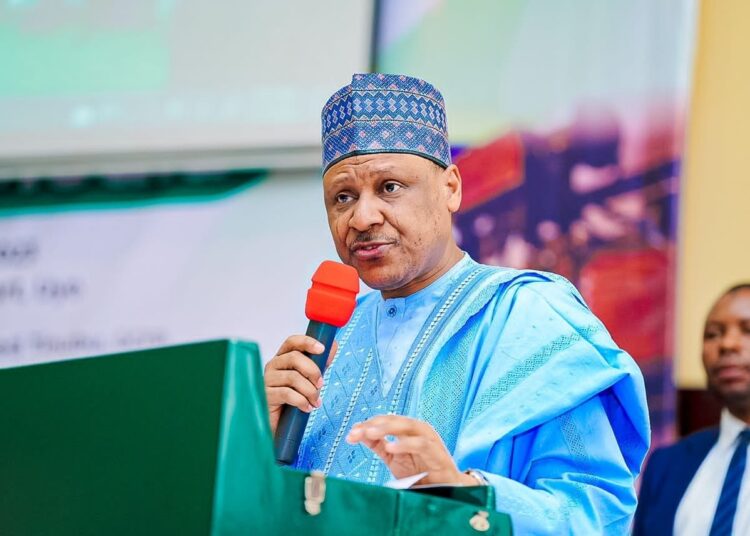The Federal Government has firmly denied recent allegations circulating on some international platforms and social media channels, which claimed that terrorist groups in Nigeria were carrying out a systematic genocide against Christians.
In a statement issued to journalists on Sunday in Abuja, the Minister of Information and National Orientation, Muhammed Idris, said the government described the claims as “false, baseless, despicable, and divisive,” insisting that such narratives misrepresent the country’s complex security challenges and risk inflaming religious tensions.
Idris stressed that framing terrorism in Nigeria as a religiously targeted campaign was not only inaccurate but also dangerous.
“Portraying Nigeria’s security challenges as a targeted campaign against a single religious group oversimplifies a multifaceted situation. It plays into the hands of terrorists and criminals who seek to divide Nigerians along religious or ethnic lines,” he said.
According to the Minister, violent extremism in Nigeria affects citizens across all religious and ethnic backgrounds. Both Muslims and Christians—as well as non-religious individuals—have been victims of terrorism and banditry.
He stated that between May 2023 and February 2025, over 13,543 terrorists and criminals were neutralised in joint military operations, while nearly 10,000 hostages were rescued across the country.
He added that in a recent major breakthrough, security forces captured the top leadership of Jama’atu Ansarul Muslimina fi-Biladis Sudan (ANSARU)—an Al-Qaeda-affiliated terror group operating in Nigeria.
“Among those arrested were the group’s self-styled Emir, Mahmud Muhammad Usman (aka Abu Bara’a), and his deputy, Mahmud al-Nigeri (aka Mallam Mamuda),” he said.
“These feats demonstrate the success of our armed forces and counter any claims that Nigeria is passively tolerating terrorism,” he added.
He further emphasised Nigeria’s commitment to accountability and the rule of law, highlighting that several military court martials and prosecutions have been conducted to punish misconduct within the security agencies.
On religious diversity, he reaffirmed Nigeria’s status as a multi-religious nation, home to one of the world’s largest Muslim populations and a vibrant Christian community, which includes some of the largest Pentecostal and Anglican congregations globally.
“Christianity is neither endangered nor marginalized in Nigeria,” he added, noting that the current heads of both the Armed Forces and the Police Force are Christians—an example of inclusive national leadership.
He also noted progress in the prosecution of terrorism cases, revealing that over 700 convictions have been secured across seven rounds of trials of Boko Haram suspects, with an eighth prosecution cycle already underway.
Highlighting Nigeria’s growing role in global peacebuilding, he cited the Commonwealth Peace Prize, awarded earlier this year to two Nigerian religious leaders—Rev. Dr. James Movel Wuye and Imam Dr. Muhammad Nurayn Ashafa—for their decades-long efforts in promoting interfaith dialogue and reconciliation.
The Minister urged international media, human rights organizations, and commentators to report responsibly and avoid sensationalism that could undermine national unity.
“The Nigerian story is not one of religious genocide. It is a story of resilience, diversity, and a globally acknowledged commitment to peaceful coexistence,” he stated.






